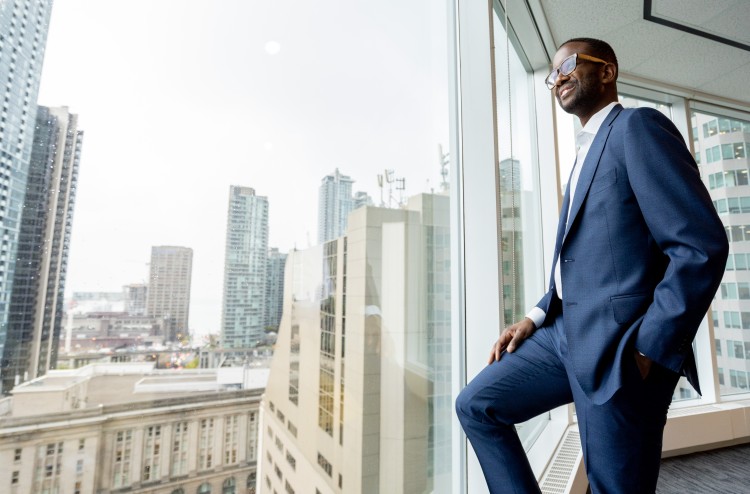CANADIAN IMMIGRATION UPDATES: Applicants to Master’s and Doctoral degrees are not affected by the recently announced cap on study permits. Read more

Ten characteristics that responsible leaders share

Do you have what it takes to be a responsible leader?
Today's social, economic and environmental challenges require new leadership approaches. As organizations put “responsibility” at the heart, they will need a broader range of leadership skills.
Let’s go over ten characteristics that responsible leaders share.
1. They are able to make difficult decisions
When it comes to making decisions, responsible leaders know they can’t please everyone all the time. As a result, they can make tough calls and accept that not everyone will agree with them.
What’s important is that they are transparent and honest about their decision-making process and take responsibility for the outcome, good or bad.
2. They listen to stakeholders
Responsible leaders understand that they need to listen to all stakeholders to make informed decisions. This means actively seeking input from employees, shareholders, suppliers, and policymakers.
Those who don’t listen to others are more likely to make decisions that benefit only themselves or a small group of people.
3. They encourage diversity and inclusion
Responsible leaders know that a diverse workforce is a strong workforce. Therefore, they encourage diversity in the workplace and make sure that everyone feels included, creating a more positive work culture.
A diverse workforce also helps bring different perspectives to the table and can identify problems that a homogenous group may not see. This is especially essential in today’s globalized economy.
4. They are constantly learning and stay up-to-date on trends
Responsible leaders understand that they need to continue learning to stay ahead of the curve. Therefore, they always look for new ways to improve their skills and knowledge.
This might mean taking classes, attending conferences, or reading industry publications. By acquiring new knowledge, responsible leaders can educate their employees and help them grow.
5. They focus on sustainability and long-term success
Responsible leaders focus on more than just immediate results. They understand that sustainability is key to long-term success. This means making decisions that will benefit the environment, society, and the economy in the future.
It can be tough to balance short-term gains with long-term sustainability, but responsible leaders know it’s necessary for the health of their organization.
6. They recognize the impact their decisions have on others
Before making a decision, responsible leaders take the time to consider how it will impact those around them. They recognize that their actions can have a ripple effect and must be mindful of the consequences.
This doesn’t mean that leaders should never take risks. But it does mean they need to be aware of the potential impacts of their decisions and be prepared to accept responsibility if things go wrong. Stakeholders should always feel their voices are heard and their concerns and thoughts matter.
7. They address issues as they arise
When problems arise, responsible leaders don’t sweep them under the rug. Instead, they face them head-on and work to find a resolution.
This might mean making some tough decisions or even admitting when they’ve made a mistake. But by addressing issues quickly and efficiently, responsible leaders can prevent them from becoming more significant problems down the road. Leaders who ignore problems only prolong the inevitable and worsen the situation.
8. They are empathetic towards others
Empathy is one of the most important qualities of a responsible leader. Leaders need to be able to put themselves in other people’s shoes and understand how their decisions will affect them. They should be able to see both sides of every issue and be respectful of other people’s opinions.
If they notice that someone is having a tough time, they must take the time to talk to them and see how they can help. A little empathy can go a long way in making someone feel valued and appreciated.
9. They promote positive change
Responsible leaders are always looking for ways to improve. They are never satisfied with the status quo and are always working to find new and better ways to do things.
This might mean implementing new policies or procedures or changing how work is done. They also focus on the greater good by promoting positive change. Leaders committed to making a difference in the world are more likely to inspire others to do the same.
10. They understand ethical and environmental challenges
In today’s business world, responsible leaders must be aware of their organizations' ethical and environmental challenges.
This means being knowledgeable about things like climate change and human rights. It also means understanding the laws and regulations that impact these issues.
Ignoring these issues, leaders are more likely to face criticism from employees, shareholders, and the public.
Responsible leadership starts with you
If you want to be a great leader, start by examining your own responsible leadership style. Are you considering all stakeholders when making decisions? Are you open to feedback from your employees?
Asking yourself these questions can help you identify areas where you can improve. And by making a few small changes in your leadership style, you can make a big impact on your organization.
Want to learn more about how responsible leadership can change the world?
Check out our leadership programs today.
Article created by UBC Sauder Executive Education